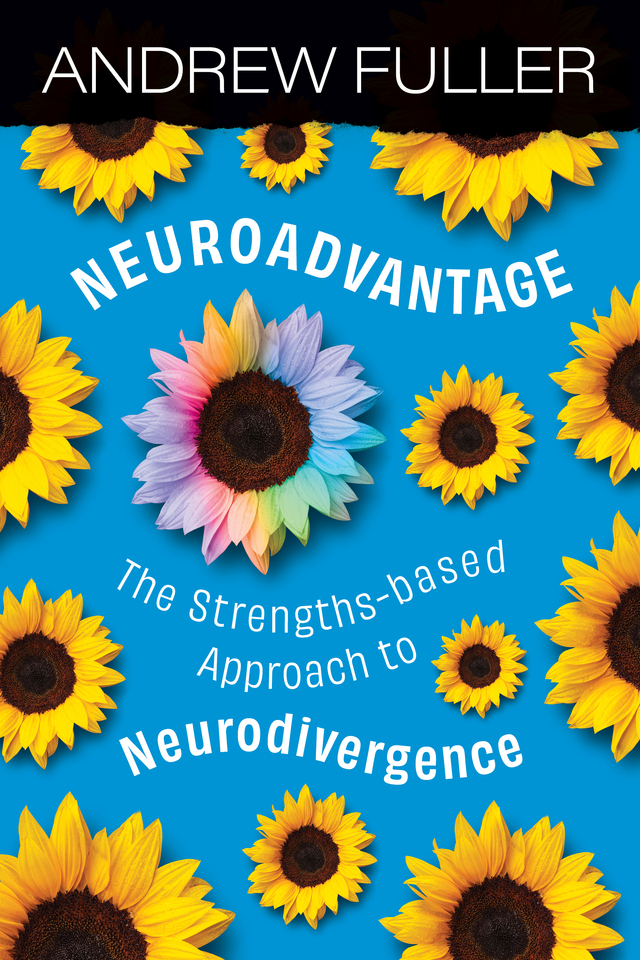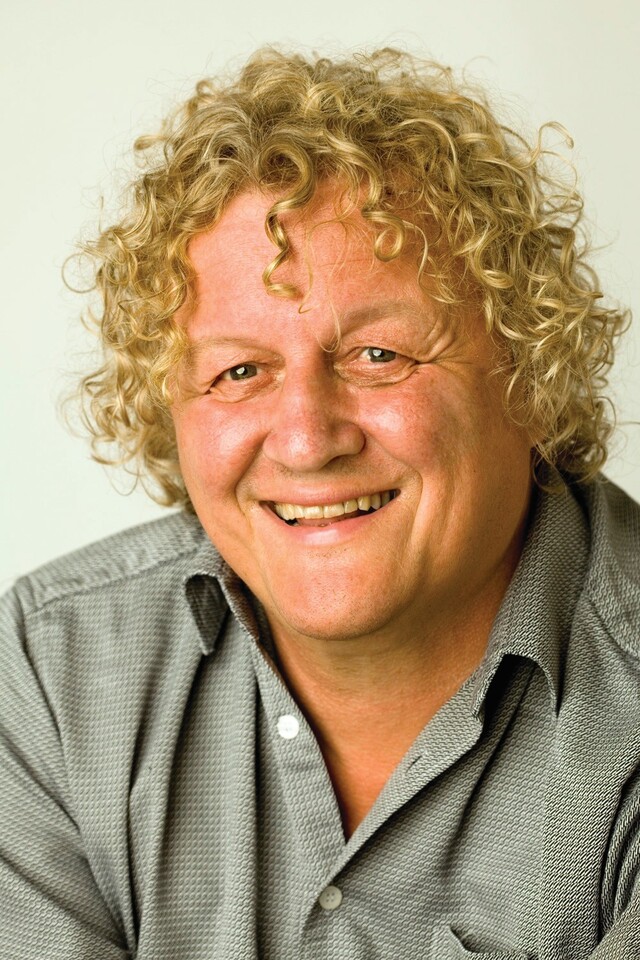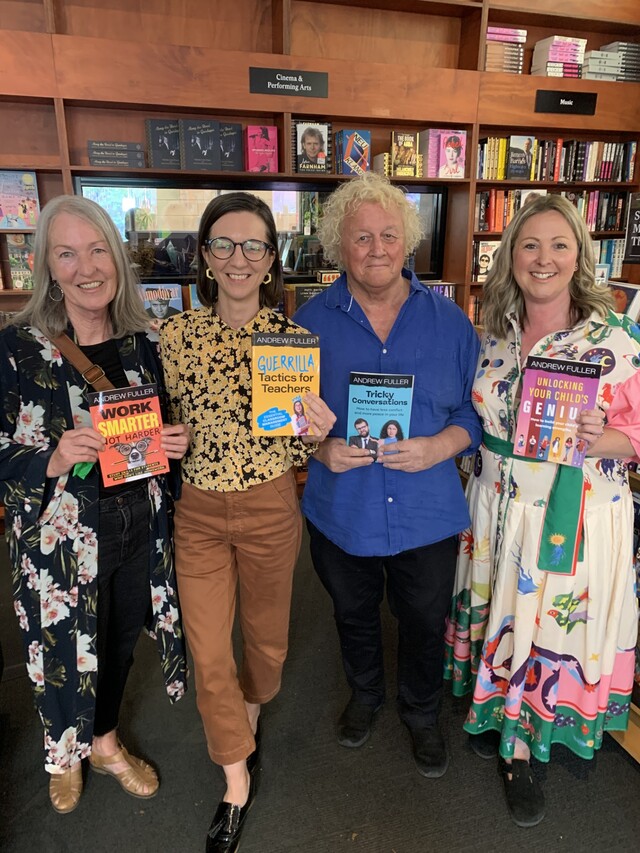By Casey Neill
Andrew Fuller believes passionately that neurodivergence has its advantages – we just need to help children identify them.
“It’s not whether people are smart, it’s how they are smart,” he says.
You can hear, see, and feel the clinical psychologist and family therapist’s passion the moment he starts speaking.
He’s known for his work in neuroscience, learning, resilience, and wellbeing, and for authoring several books.
Neuroadvantage is his latest, and “This one’s a special one.”
“I hope it makes a real impact,” he said.
He wrote it to empower the parents and educators of neurodivergent children to embrace their child’s differences as the remarkable gifts they truly are.
Andrew shares how to identify your child’s unique learning strengths and leverage them to build confidence, resilience, and lifelong capabilities.
“I’ve had lots of feedback along the lines of ‘I’ve never thought about it this way, I’ve never thought about helping my child in that way’,” he said.
“It’s pretty heartwarming.”
He included tools to help convert challenges in attention, sensory processing, reading, writing, and emotional regulation into powerful advantages that school systems often miss.
“I’ve really been very concerned about the idea that lots of people who are different in all sorts of ways think that they are less able or not as smart,” Andrew said.
“Many of them, of course, didn’t fit neatly into the school system.
“They concluded that they were a bit second-rate.
“Yet, when I sit down and talk to them, which I have the great privilege of doing regularly, they come up with some of the most insightful solutions to problems I’ve ever heard.
“We’re good at some things other people aren’t good at, and vice versa.
“The point that I make is that these are just variations.
“These variations enabled the tribe that you originally came from to survive.
“They didn’t survive by everyone being the same.
“That’s what humanity really relied on.
“We forget that.”
Researching brain processes and pathways led him to identify individuals’ dominant pathways “not as an end point – that’s all that you can do – but a kickstarter.”
“I was thinking about turning neurodiversity into an advantage,” he said.
The book was informed by this research, “and my work with thousands of these people”.
“As I was researching, I became more passionate about it,” he said.
“There’s something seriously wrong with the way we’ve been viewing this.
“If you think about ADHD, these are people who often have lower levels of dopamine in their prefrontal cortex, so they’re looking around for the buzz.
“We often think about them lacking concentration.
“But when they’re passionate about something, they are on overdrive.
“So, how do you use that?”
Kids on spectrums often have incredibly systematic, pattern-derived thinking.
“If you can help them to use that well and apply it, they’re smart,” he said.
“Kids who are dyslexic or have problems reading words, they’re not interpreting the world necessarily through written material, they’re actually using their imagination.”
And children with auditory processing issues?
“They don’t quite get the world in terms of language, because it doesn’t make sense, but they are people who have a directness of experience,” he said.
When neurotypical people hear or see something, they classify it.
“If you’re not so into words, you think about things in a much more holistic, creative way that gives you an advantage,” he said.
“The job here is to find the treasure in that person and maximise their potential.
“This person’s contribution would be different in a workplace than this person, who’s more mainstream.
“They’ll give me a completely different way of viewing it than this person.”
That’s in the workplace, but what about in schools?
“The world of education is facing a crisis point where it has to change,” Andrew said.
“We still have a system with this idea of assessment, pass, fail.
“There’s one right answer, so the assessment reflects that.”
But what about children who have the right answer but not the ‘right’ way to articulate it?
“It’s not whether people are smart, it’s how they are smart,” he said.
“We need to give them different ways of doing the same task.
“It sounds really complicated, but once you know their learning strengths, it’s not.”
He said it was as simple as pairing a kid who was good with words with a kid who’s good with pictures and another who’s good at planning on the same project.
“They’re all feeling good about themselves,” he said.
“You’re starting with what’s strong, not what’s wrong.”
Andrew said technology was helping neurodivergent children to “overcome things that previously were massive barriers”.
For example, dyslexics can turn to YouTube and podcasts for aural learning, rather than having to rely on inaccessible books.
“I talk about these things with families, with parents who’ve got these sorts of kids,” Andrew said.
“It became a bit of a mission of mine.
“We often get so concerned about screen time with this, but if we just focus on that, we’ll miss really what’s an equity issue.”
Andrew started his career on crisis teams.
“I was a new psychologist with no idea what I was doing,” he said.
He’d get called out to people in acute mental distress and simply converse with them.
“I became aware that as I did that, they were there not because they were mentally ill necessarily,” he said.
“It’s not that they don’t have challenges, but most of these people had relationship issues.
“They thought the best way to solve it was for them to no longer be around.
“Let’s talk about the relationship instead.”
So Andrew asked himself, “How do I stop people from getting to that point in their life?”.
“I started to research resilience,” he said.
After a disappointing presentation about psychological wellness at a school principal conference, which he felt the attendees were dismissive of, he studied brains and learning.
He then built his psychological wellness advice into a ‘learning’ framework, and the rest is history.
“It’s great to have one-on-one stuff,” he said.
“It’s a privilege to have conversations that they would never have with anybody else in their world.
“But if I want to impact more broadly…”
So, in addition to his private practice and books, Andrew regularly conducts workshops and presentations.










